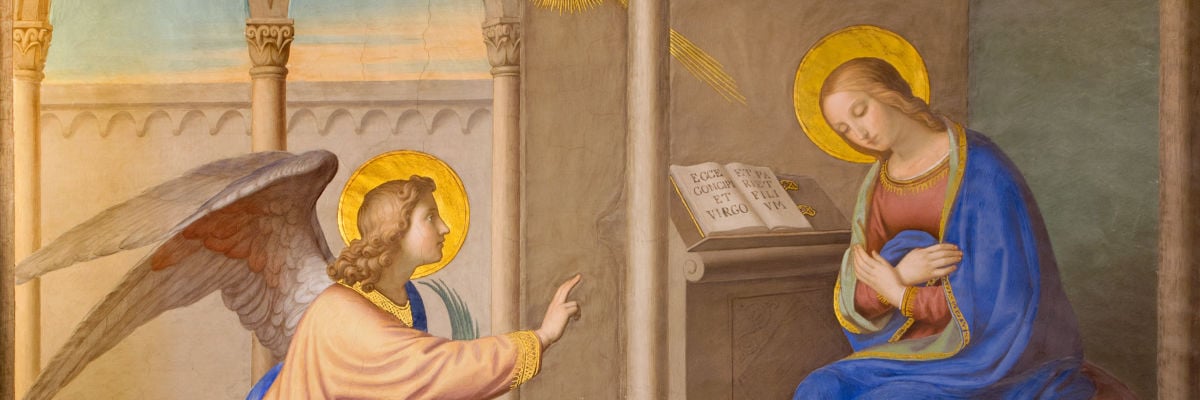
Homily for the Twenty-Second Sunday in Ordinary Time, 2021
Dearest brothers and sisters:
All good giving and every perfect gift is from above,
coming down from the Father of lights,
with whom there is no alteration or shadow caused by change.
He willed to give us birth by the word of truth
that we may be a kind of firstfruits of his creatures.Humbly welcome the word that has been planted in you
and is able to save your souls.Be doers of the word and not hearers only, deluding yourselves.
Religion that is pure and undefiled before God and the Father is this:
to care for orphans and widows in their affliction
and to keep oneself unstained by the world.-Jas. 1:17-18, 21b-22, 27
Our Catholic faith is one, and we all recite one creed in professing it, but we express our faith in different ways. We are acquainted with several styles of speaking and writing according to the spiritual traditions that have grown up, under the influence of the Holy Spirit, throughout the Church’s rich history. If we read from the writings of the saints of various times, for instance, we notice a difference in tone or vocabulary or interests.
Sister Lucia of Fatima speaks in one way (and she says her favorite spiritual reading is St. Paul, not the latest apparitions…), St. Thomas Aquinas in another; St. Edith Stein in one way, and St. Alphonsus in another; the Imitation of Christ in one way, and the Introduction to the Devout Life in another; the Fathers of the Desert in one way, St. Therese of the Child Jesus in another.
You get the point!
Did you ever wonder, though, how the spiritual reading and the devout thought world of the Lord Jesus’ natural family, including his cousins, aunts and uncles and other relatives, would have sounded? Read the epistle of James, of which we hear a beautiful part today, and you will have a clear idea.
Before the final expulsion of the Jews from the Holy Land under the emperor Hadrian in the second century, there was a thriving community of “Jewish Christians.” These were Christians in Judea, Samaria, and Galilee who maintained a close connection with the Jewish world—to the house of Israel to whom Our Lord himself said he had primarily come. These included his extended family, both those who had always believed in him and those who doubted at first, as the Gospels tell us, and then believed later, after Pentecost. Like the Copts in Egypt, these early Jewish Christians retained a very strong sense of the childhood and parentage of the Savior, and most especially of the role of his mother and St. Joseph. Practically the earliest Christian poetry with a Marian bent we find coming from this community: the so-called Odes of Solomon.
St. James, the “brother of the Lord” and first bishop of Jerusalem, was such a Jewish Christian, and his epistle is distinctly Jewish in its tone and concerns. The living sense of the power of God descending from the heavens and working in the world by his Word and Spirit to accomplish the loving works of righteousness is in direct spiritual connection with the Wisdom spirituality of the most profound strains of Judaism of Our Lord’s time—the Judaism that found it easy and not difficult to accept the mystery of the Incarnation of the Word of God, born of the Virgin Mary by the overshadowing of the Holy Spirit.
You will hear sometimes that the notion of an Incarnate God is inconceivable to the Jewish mind. If this had been true in the first century, then we would have to say that God had done a very strange job of preparing his people for this sublime revelation! Such a claim of incompatibility is mostly based on the rejection of Jesus, not on the thought-world of the Judaism of his time. The whole tradition of the active Wisdom of God, which we read in Proverbs and Sirach, the mysticism of the first temple before the exile, made God’s appearing substantially in his creation a familiar concept.
Look closely at this reading in your missalette or at the beginning of this homily, and simply follow the logic of today’s passage: all gifts come down from the Father, who brings us to birth in his word of truth, in the Spirit, called the “first fruits” at Pentecost to those who humbly welcome that word by accomplishing its works.
An angel of God comes down from the Father and announces the child to be born of the one who said humbly, “Be it done unto me according to your word.” And the Spirit, the first fruits, overshadows her and the Word becomes the very fruit of her womb, she who was not only a hearer of the Word but a doer of the Word; she who kept herself “unstained by the world.”
The thought world of Our Lady and of the converted family of the Lord Jesus was closely knit to the words of Sacred Scripture, very close to the heart of what we believe; so close that their own prayers had the sound and the feeling of that inspired Word. Look at the Blessed Mother’s canticle of praise before Elizabeth and see how it is that the early Christians closest to Jesus, even by bonds of blood and family, saw the unfolding of their Christian lives as part of the same order in which he had come down from heaven for their salvation.
This means that they were doers of the word and not only hearers: that is, the Word made Flesh whom they believed was the model for their putting their faith in him into fact, into action, into the works performed in flesh and blood.
May Our Lady and James and all the brethren of the Lord intercede for us that we may be doers of the word and not only hearers, that he may become flesh also in us for the salvation of the world!



